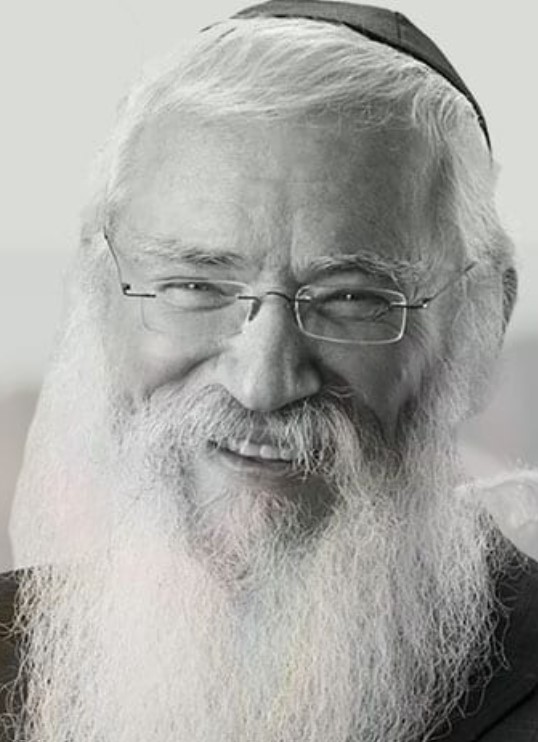
Rabbi Manis Friedman is a Chabad Hassid, Lubavitch Shaliach, author, teacher, and world-renowned public speaker. Serving as dean of the Bais Chana Institute of Jewish Studies, he has authored a number of published works, the latest being Creating a Life that Matters: How to Live and Love with Meaning and Purpose.
Q: Would you share the incredible story about what happened to you in Argentina?
It was one of the most fantastic experiences ever. This took place over 25 years ago, when I was invited to speak in Argentina. The flight route was from Minnesota to New York to Miami, and then to Chile. I don’t fly well and generally suffer through the travel.
After an exhausting journey, I finally arrived in Buenos Aires, where I was picked up by a driver and taken to the hotel to rest up. The very next day we started the lecture tour. As we were driving along, the driver disclosed, “By the way, there is a woman in town who suffered a terrible tragedy and is severely depressed. She hasn’t left her apartment in six months and she refuses to talk to anybody. But when we told her that you were coming, she expressed her willingness to talk. So we will stop at her apartment on the way to the hotel and you will have the opportunity to talk to her,” he continued matter-of-factly.
I was furious. It had to be on the way to the hotel, I thought? But what bothered me the most was that he hadn’t even told me earlier. He didn’t ask me. He didn’t warn me or give me a heads-up.
Reluctantly, we knocked at her door and I came into the apartment. She looked like she had passed away but no one had told her! There was no life in her eyes, no tone in her voice, and no color in her skin. She hadn’t left her apartment for many months. Then, suddenly she opened up and began to tell me her story. Her 19-year-old son had been driving back from their country home in Argentina and was killed in a tragic car accident. As her heart began to offload, she related what a great kid he had been; he was respectful, a really good person, and had wonderful qualities.
I attempted to comfort her by saying, “You had a fantastic kid and you had him for 19 years.” She was not impressed; she was still suffering terribly from the shock.
Imagine if there was no shock and that G-d comes to you and says, “There is a precious soul in heaven. He needs to be born and to live on earth for 19 years. I am looking for someone to be his mother.”
I asked her, “What would you have said if G-d had asked you?” I was sure she would say, “For sure.” But instead she said emphatically, “absolutely not!”
And without thinking I said to her, “It is a good thing that G-d didn’t ask you.” It was then that the floodgates opened up and she started to cry like she needed to cry for the last six months. And within 20 minutes, she came back to life in front of my eyes. It was breathtaking to see this happen.
Afterward, I was back in the car going to the hotel, thinking about how mad I had been when I was told that I was going to help a grieving mother. Then I was thinking, “What would I have said, if they had asked me?” I would have said, “Absolutely not.” That would have been the wrong answer. I would not have given up that experience for anything. Of the 50-plus years talking to people, I have to say that was the most amazing experience.
What I learned from this was, “What made her cry all of a sudden?” She needed to cry for six months and couldn’t, as if bottled up. If G-d had asked her if she would be willing to be a mother of this child, she would have said no. And when she heard herself say that, she was shocked that she was saying no to her son. She wouldn’t have wanted him? How does a mother say that? Her maternal instincts came back and instead of being a mother of a son that died, she became a permanent mourner and stopped being his mother. But when she realized she had stopped being his mother and became a mourner, it shocked her back to reality, and she cried like a mother cries over her child, ultimately returning to being his mother.
It is a very important lesson. If a person passes on, it doesn’t mean that you stop existing, which means that the relationship hasn’t stopped existing.
A mother in heaven is still a mother in heaven and a child in heaven is still a child in heaven. We do ourselves a lot of harm when instead of being a parent, we become a griever. And maybe that is why the Torah says you grieve for seven days and then you have to get up because it doesn’t do the soul in heaven any good.
Q: Please tell us about your new book, Creating a Life that Matters?
Creating a Life that Matters has been called an essential reference guide or a manual by which to live and love with meaning and purpose. The book, about 400 pages long, covers a number of fundamental issues in life, including marriage, intimacy, raising children, life and death, G-d, and His people. It covers the really big issues which are often neglected in the schools, which focus more on memorization of facts and irrelevant information and details. What is in this timely and supremely relevant book is what needs to be discussed, acknowledged, and understood.
Unfortunately, Creating a Life that Matters is out of print. Despite being hot off the press, it is out of print already and we can’t get more printed. Due to the covid-19 pandemic, this country is not functional. I don’t know if the hold-up is due to a shortage of paper, ink, or what. The printing industry is behind, and apparently nothing will be printed until February. So the country needs a blessing, too.
Q: In Creating a Life that Matters, you talk about happiness and mention a couple who have been happily married for many long years until a famous doctor came to town. Would you please tell us about this story?
The fable is told about a couple who had been happily married for many long years. The husband was just about the ugliest man in the world, but his wife didn’t care because she was blind. The wife was vicious and super-critical, but the husband didn’t care because he was deaf. They lived together blissfully, until one day a famous doctor came to town who was said to be able to cure almost anything. They went to him, and he cured the wife of her blindness, and the husband of his deafness. Some weeks later the doctor came to their door to collect his fee.
To his surprise and dismay, the couple attacked him. “You’ve ruined our lives!” they yelled. “We were happy before and now we are miserable! Look at what you’ve done!” The doctor apologized profusely. “I am so terribly sorry. Please come back to the clinic, and I will make you blind and deaf again. At which point they screamed, louder than before. “No! That’s the last thing in the world we want!”
We have complaints to G-d that our life is not good.
– Okay, so you don’t like the life I gave you – I will undo it.
– -Oh, I didn’t mean that.
– So you do like your life. Some things you don’t like, but generally life is great. So you have to be careful when you complain about the things you don’t like. Don’t make it look like you don’t want life. Even people who are suicidal want a better life. A meaningful life. But they want life.
Q: Speaking of happiness, what makes you happy?
Ideally, we shouldn’t really need anything to make us happy. Life is great. Children are happy. So by nature we are happy. Everything is a pleasure and we don’t need an excuse for being happy. The question is if life is difficult and life is painful, what do you appreciate about life that keeps you happy?
And then we need to stop and think about it. If everything is normal, we wouldn’t have to think about it at all. Life is a joy. So we have to be a little childlike, having the enthusiasm of a child with the maturity of an adult.
Q: What was the best piece of advice that was given to you?
While I was in yeshiva, every student had to get up and give a talk. I thought I was exempt because I was so shy. But my rebbe felt differently. “Don’t be so bashful. Get up and speak!” That was more than advice, that was a command. And it was probably the best thing that ever happened to me in the form of overcoming my shyness and finding myself comfortable speaking in public. Who would have thought then that I would be who I have become today, simply from the command of a wise rebbe!
To hear the entire interview, please click on the audio link below.
